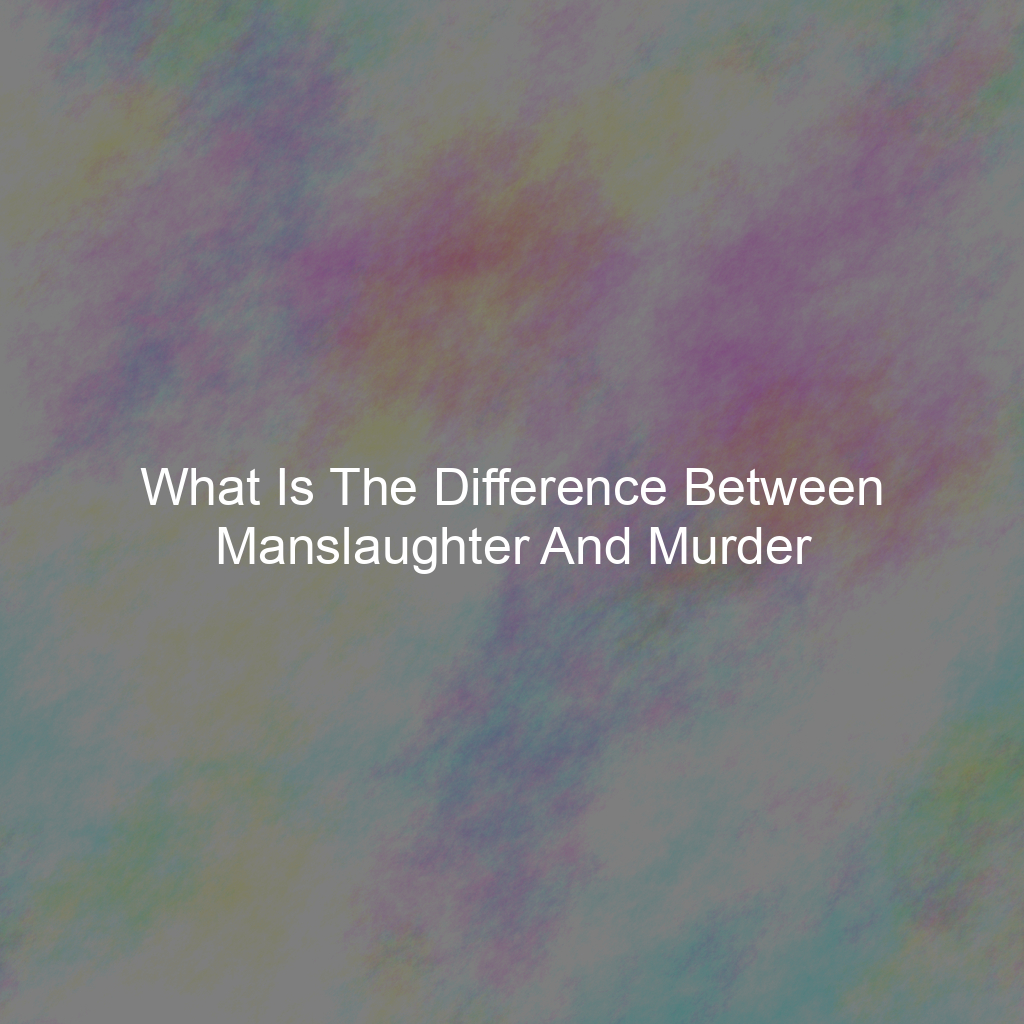what is the Difference Between Manslaughter and Murder
Murder and manslaughter both end a person’s life too soon, but they are legally different words. When someone is murdered, they do it on purpose, but when someone is manslaughtered, they do it without meaning to. Different crimes have different legal consequences for the person who did them.
What Does Murder Mean?
In California, murder is defined as the intentional killing of an individual with “malice aforethought,” which is the same as malice. “Express malice” and “implied malice” are the two types of malice. When an individual intended to kill another individual or individuals, this is known as express malice. Implied malice is the act of a person who intentionally commits an act that they knew was dangerous to human life and other individuals, resulting in death. In other words, the murder was committed with a deliberate disregard for human life.
“Murder” is the word for a crime that involves either direct or indirect malice. First-degree murder and second-degree murder are two more types of murder. The person who committed first-degree murder did so on purpose and with knowledge of what they were about to do. They chose to kill the other person. Second-degree murder is when someone meant to kill someone else but didn’t have time to plan or think about it. For example, someone might have killed someone in a “heat of passion” or because they were acting in a dangerous way that showed they didn’t care about human life.
What Does Manslaughter Mean?
Manslaughter is also killing someone or more people without intent, but there is still a “conscious disregard for human life” in this case. Manslaughter can happen on purpose or by accident. The crime of murder is called voluntary manslaughter if it is done out of anger or to protect yourself or someone else. When someone dies accidentally because of carelessness or criminal negligence, like during a DUI or other low-level felony, this is called involuntary manslaughter.
A “heat of passion” is when someone kills someone else after being provoked, when someone acts quickly out of strong emotion after being provoked, or when someone was provoked in a way that would normally make a normal person act quickly.
Basically, the jury has to decide that the person was provoked to the point where he acted out of strong emotion instead of planned anger.
If you have been arrested and are being charged with murder or manslaughter, you need to talk to a criminal defense lawyer like Sevens Legal Criminal Lawyers. For a free consultation, call Sevens Legal Criminal Lawyers right now.
What’s the Main Difference Between Killing Someone and Killing Someone?
- The fundamental distinction between the two categories of homicide is the intent of the perpetrator. Murder charges are routine when the accused’s intention is evidently to inflict grievous bodily harm. Nevertheless, manslaughter is typically the charge when the intent is absent, such as when the death occurred in the heat of the moment or as a result of reckless behavior.
- The penalties for those who are found guilty of these offenses are highly variable. For instance, a life sentence in prison may be imposed upon an individual who is found guilty of murder. (A life prison sentence is the most severe punishment in Australia since the death penalty was abolished in 1985.)
Because there are so many possible punishments for manslaughter, each case must be looked at on its own merits. The punishment for manslaughter depends on the specifics of the crime. For instance, if you are drunk and hit someone with your car, killing them, you will get a harsher sentence than if your car skidded on wet pavement and hit someone, killing them.
Humanitarian killing is a broad term for many crimes. In Australia, the harshest punishment for this crime is 25 years in prison. But there is no minimum sentence for the crime. Possible punishments are:
- Reduced jail time
- Fines
- Bonds
- Sentences put on hold







